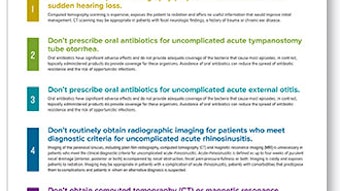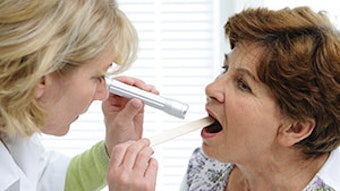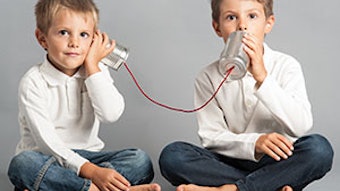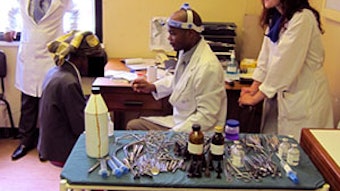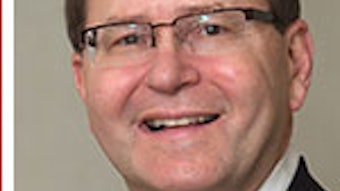For all who care for the voice
I have a vivid recollection of a patient I encountered early in my residency. I “worked him up” the day before his scheduled laryngectomy for supraglottic cancer. As I watched him read his informed consent form, he seemed calm and resigned to the dire necessity of the surgery. But that evening, as I pulled out of the parking garage on my way home, I saw him sitting on the front steps of the hospital, talking into a cassette tape recorder. He wanted to save a sample of his voice, which he would otherwise never hear again.
By Gayle E. Woodson, MD, AAO-HNS/F President
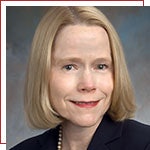 Gayle E. Woodson, MD, AAO-HNS/F President
Gayle E. Woodson, MD, AAO-HNS/F PresidentI have a vivid recollection of a patient I encountered early in my residency. I “worked him up” the day before his scheduled laryngectomy for supraglottic cancer. As I watched him read his informed consent form, he seemed calm and resigned to the dire necessity of the surgery. But that evening, as I pulled out of the parking garage on my way home, I saw him sitting on the front steps of the hospital, talking into a cassette tape recorder. He wanted to save a sample of his voice, which he would otherwise never hear again.
April 16 is World Voice Day, a time to focus on the value of voice. Multiple events are scheduled worldwide to raise awareness of the enormous importance of the voice. As otolaryngologists, we have a unique perspective on the value of voice. But most people take their voices for granted. A newborn baby enters the world crying. It comes so naturally. We talk, we scream, we shout, we sing (some much better than the rest of us). When laryngitis strikes, it can be surprisingly debilitating. We lose our vocal persona. Maybe we can’t sing. People may not be able to hear us. If we whisper, people seem to whisper back. If we speak too slowly, others jump in to complete our sentences. If speaking becomes a great effort, there is an inclination to be silent and withhold emotions and opinions. And if you can’t speak at all, many act as though you are also unable to think. The voice conveys not only spoken words, but communicates emotions. Each person’s voice is unique and conveys identity.
World Voice Day also should be a time for otolaryngologists to think about our colleagues in other disciplines who join us in caring for the voice. Unfortunately, too many health insurance plans do not acknowledge the important roles that others, such as speech pathologists and singing teachers, play.
Rehabilitation is recognized as a critical component of treating many orthopedic injuries and cardiac conditions. In contrast, voice therapy is usually not covered for patients with voice disorders. I have never had difficulty in pre-certifying patients for surgical removal of vocal fold lesions. But voice therapy that would likely obviate the need for surgical removal of vocal nodules is routinely denied.
A major hurdle is the dearth of robust quantitative measures to document outcomes that are essentially qualitative. This challenge is continually addressed by voice scientists and researchers who should also be acknowledged for their dedication. The brightest future for everyone’s voice is in the continued collaboration of all who care about voice.
